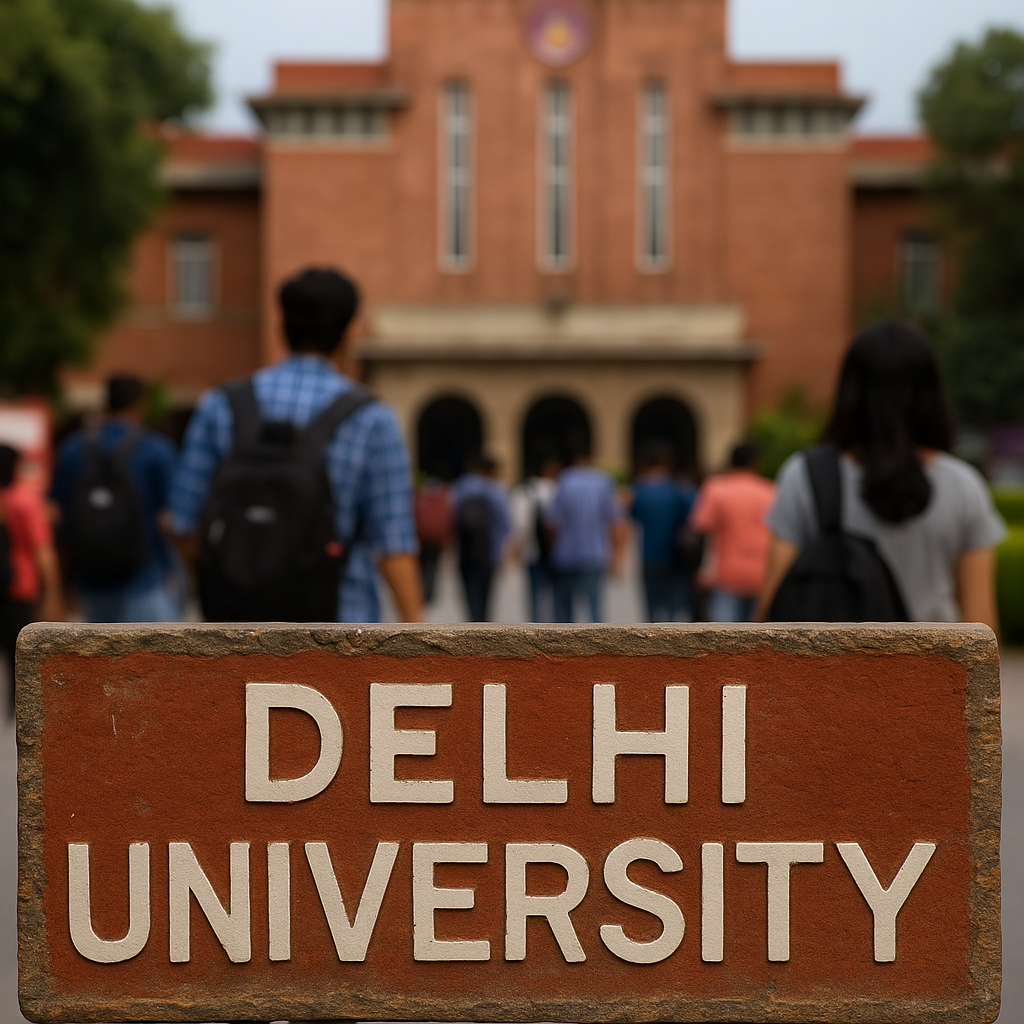Rising Concerns Over Delhi University’s March 31 Cut-Off
In a recent appeal to the University Grants Commission (UGC), a group of academics and education activists have raised red flags over Delhi University’s OBC certificate deadline for postgraduate admissions. DU’s current policy mandates that OBC (Other Backward Classes) applicants submit caste certificates issued after March 31, 2024—a requirement that critics argue unfairly excludes deserving students from marginalized communities.
“This condition disproportionately affects students from rural and disadvantaged backgrounds, many of whom cannot renew their certificates within tight timelines due to administrative bottlenecks,” stated an academic signatory.
The issue touches on broader themes of accessibility, equity, and procedural justice in one of India’s most competitive university admissions processes.
What’s the Issue With the March 31 Deadline?
Delhi University’s portal currently rejects OBC certificates issued before March 31, 2024, regardless of whether the candidate’s caste and status remain unchanged. The policy, according to academics, fails to consider:
- Delays in certificate issuance, especially in non-urban areas
- The fact that the central OBC list does not change annually
- The procedural hurdles and backlogs in government offices
As a result, even eligible students with valid caste status may be disqualified from availing their rightful reservation benefits.
“Why should a student be denied access because a tehsildar office took three months to issue a new certificate?” one education activist asked rhetorically.
What Are Academics Demanding from UGC?
In their formal representation, the group has asked the UGC to:
- Intervene and instruct DU to accept OBC certificates issued up to 12 months before the deadline
- Issue central guidelines to all universities to adopt inclusive timelines for OBC, SC, ST, and EWS documentation
- Recognize that bureaucratic challenges should not override constitutional entitlements
They also highlighted that DU’s policy could potentially violate the spirit of Article 15 and 16 of the Indian Constitution, which uphold the rights of backward communities to access education and opportunity.
What It Means for DU Applicants
Many applicants are caught in a dilemma. Even if they belong to the OBC category and are on the central list, their certificates—issued just days or weeks before March 31—are being rejected. These students, despite scoring qualifying marks and meeting all academic requirements, now face rejection due to a technicality unrelated to merit.
This disproportionately affects:
- Rural applicants
- First-generation college-goers
- Those from states with slow digital governance systems
Policy Implications and Political Overtones
With DU being a centrally funded university and a benchmark for other public institutions, this controversy has national-level implications. The UGC’s response (or lack of it) may influence how reservation documentation is handled in future admission cycles across India.
While the UGC has not issued a public statement as of June 21, the growing media and academic pressure could lead to a revision of the cut-off date or an exceptional extension for the current admission round.
FAQs
What is the current DU policy for OBC certificate submission?
Delhi University requires OBC candidates to submit certificates issued after March 31, 2024, regardless of whether their previous certificates are still factually valid.
Why is this policy controversial?
It disregards the practical delays in certificate issuance, particularly in rural areas, and could exclude eligible candidates who meet all other criteria.
What are academics asking UGC to do?
They want the UGC to allow universities to accept OBC certificates issued within one year prior to the admission deadline, not just after March 31.
Can the policy affect DU’s diversity?
Yes. Students from marginalized backgrounds could lose out on seats they otherwise deserve, reducing representation from backward communities.
Is this a violation of any constitutional rights?
The academics argue that it may violate Article 15 and 16, which protect the rights of backward classes to access education and employment.
Has DU responded to the criticism?
As of now, no official response has been released by DU regarding any policy changes or deadline extensions.
Are other universities following the same policy?
While DU’s rule has sparked debate, many central and state universities have their own timelines. However, DU’s policy may set a precedent if not challenged.
What can affected students do?
They can appeal through academic forums, student bodies, or legal representation. Many are also participating in advocacy campaigns to reverse the deadline.
Will UGC likely issue new guidelines?
It remains to be seen. Given the growing attention, a clarification or exception from UGC is a strong possibility.
How can students stay updated?
Students should monitor:
- DU’s official website
- UGC public notices
- Reliable education news portals like Jagran Josh, Indian Express Education, and Hindustan Times Education

